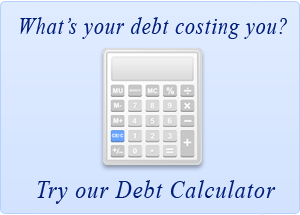Secured Debt
Auto and Home Loans: Debt repayment plans usually cover unsecured debt. Your auto and home loan, which are considered secured debt, may not be included. You must continue to make payments to these creditors directly.
Most automobile financing agreements allow a creditor to repossess your car any time you're in default. No notice is required. If your car is repossessed, you may have to pay the full balance due on the loan, as well as towing and storage costs, to get it back. If you can't do this, the creditor may sell the car. If you see default approaching, you may be better off selling the car yourself and paying off the debt: You would avoid the added costs of repossession and a negative entry on your credit report.
If you fall behind on your mortgage, contact your lender immediately to avoid foreclosure. Most lenders are willing to work with you if they believe you're acting in good faith and the situation is temporary. Some lenders may reduce or suspend your payments for a short time. When you resume regular payments, though, you may have to pay an additional amount toward the past due total. Other lenders may agree to change the terms of the mortgage by extending the repayment period to reduce the monthly debt. Ask whether additional fees would be assessed for these changes, and calculate how much they total in the long term.
If you and your lender cannot work out a plan, contact a housing counseling agency. Some agencies limit their counseling services to homeowners with FHA mortgages, but many offer free help to any homeowner who's having trouble making mortgage payments. Call the local office of the Department of Housing and Urban Development or the housing authority in your state, city, or county for help in finding a housing counseling agency near you.


